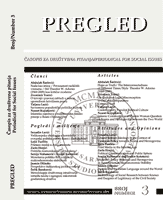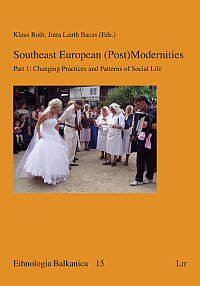



Keywords: innovations; team; creativity; comprehension; idea generation; idea implementation.
While performing the study of the components of creativity in innovation team, three stages of creative endeavours are indicated: comprehension, idea generation and idea implementation. It is discerned that comprehension is mostly influenced by the team members’ freedom, openness, ideological content and security. The parameters approximating the function of comprehension point to the fact that the freedom and ideological content of the team members influence their comprehension the most. The stage of idea generation contains these components of creativity: intuition, imagination, perception, resourcefulness, criticism. The approximating parameters of idea generation point to the fact that intuition and imagination have the strongest effect on idea generation. The idea implementation stage outlines these components of creativity: courage, wisdom, responsibility, and perseverance. The approximating parameters of idea implementation lead to the conclusion that courage and responsibility have the strongest effect on the implementation of ideas.
More...Keywords: project analysis; time delays; project management; health care industry; factor analysis; delay controls.
Every project will have certain objectives and service levels to be achieved. The success of a project depends on several dimensions like time, cost/budget, quality, etc. and managing a project involves completing the project within time, within budget and with quality to satisfy the users. Because of the significance of health, pharmaceutical companies realized the importance of project management methods and techniques to make available the life saving drugs in time to the needy patients and hospitals. In literature, there is meager information about pharmaceutical project management oriented towards analysis of issues and factors that contribute to the failure or success of projects. This study attempts to analyse different issues that contribute to time delays in pharmaceutical product-based projects, group them under a finite set of prominent factors and identify remedial measures to control those delays. The feedback of project people of some big pharmaceutical firms of Indian sub-continent was collected for this purpose. Exploratory factor analysis (EFA) has been used to reduce the reasons for time delays to a limited number of prominent factors and the EFA model has been further examined by confirmatory factor analysis (CFA) for its validation. Remedial measures under each factor of time delays have been gathered and a framework designed to mitigate the time delays in pharmaceutical projects. The derived factors that delay the pharmaceutical projects include resource, monitoring & control, scheduling and planning problems. Important remedial measures like blended resource approach, estimation and forecast of shortage of labour and skills, regular quality training, etc. have been recommended.
More...Keywords: quality of care; factors of quality of care; assessment of quality of care; quality of care model; the basic processes of the medical organization.
One of the most acute problems in the healthcare industry – the problem of the quality of medical services. In this area, there is no established definition of medical services or approaches to quality management. The aim of the article is to analyze the existing definitions of “quality of medical services,” as well as development approach to managing medical organization. At the same time the management of the medical organization should be focused on ensuring the quality as the most important criterion for the organization. Methodology of the study is based on analysis and grouping of existing definitions of medical services, the factorial approach to evaluating the quality and organization of the process approach to management of the medical organization. Noting the versatility and diversity concepts of quality of care the authors suggest grouping of direct and indirect factors affecting the quality of medical services. However, it is important, according to the authors, to move from functional management to management based on the process approach, which provides better control over the processes of customer service. Is given process model of quality management of health services and highlights the main groups of processes in the medical organization.
More...Keywords: prioritizing R&D; foresight model; advanced technologies; research institute; strategic research programme.
Foresight – that is systematic, in-depth analyses of social, technological, economic, environmental and political development trends in order to anticipate their impact on organisation, sector or a region in a long term perspective supports taking effective strategic and operational decisions at different organisational levels and thus shapes a country’s economic development. The paper gives an overview of the corporate foresight process realised at the Institute for Sustainable Technologies – National Research Institute (Radom, Poland) based on an original technology foresight model, which takes into account the results from national and sectoral foresight processes in order to generate and prioritise future research priorities and technologies of the institute. The paper gives evidence of the practical implementation of the institute’s corporate foresight scientific outcomes into the national R&D agenda through the launch of the strategic research programme “Innovative Systems of Technical Support for Sustainable Development of Economy”.
More...Keywords: consumer; consumer policy; behavioural changes; trends; consumer policy; recession.
The negative effects caused by the economic recession of the recent year, led to the necessity to recognize the changes in the consumer behaviour that may have a lasting impact, and they definitely will. The situation in the Slovak consumer market is described and characterized by the survey which was conduced in 2013. The article also raises three hypotheses considering the basic fact about consumers and their impact on the intensity of behavioural changes. In order to verify our results surveys and studies carried out by many companies in various countries are analyzed in the last chapter.
More...Keywords: small and medium enterprises; business growth; entrepreneur; innovation; motivation; incentives.
Innovation is one of the most important factors for business growth. Human capital plays a significant role in the successful process of innovation. This article deals with employee motivation in the innovation process and the main scientific aim of this study is to present results of research that was undertaken in the Czech Republic at the beginning of 2013. Questionnaires were used for the survey and statistical analyses such as Chi square test or Hierarchical cluster analysis were used for data processing. This study also provides a theoretical and practical overview of business innovation in the Czech Republic.
More...Keywords: institutions; institutional economics; institutions and growth; economic development; industrial revolution.
The purpose of the article is to survey the significant literature on the role of institutions – formal and informal constraints that affect investment in physical and human capital – in economic performance and propose a new, comprehensive definition and classification of institutions, as well as to develop a conceptual model to illustrate the interaction between institutions and socioeconomic development. The literature shows that institutions played an important role in facilitating technological progress and leading the world into the modern economic regime. Moreover, quantitative research proves that institutions significantly impact socioeconomic performance around the globe.
More...Keywords: vertical knowledge transfer; knowledge continuity; business continuity management; factors; organizations; survey.
For organizations the losing key employees is the greatest threat; if the organizations lose the key workers, they cannot use their premises, data, information and other resources. The article aims at evaluation of the level of vertical knowledge transfer in organizations in the Czech Republic. The partial goals of this article are to determine dependencies between the examined qualitative features. The article has been drawn up using scientific methods, in particular logical methods, such as analysis, synthesis, induction, deduction and comparison. The results were obtained from longitudinal quantitative research in organizations in the Czech Republic from 2010 to 2014. The article identifies the factors affecting vertical knowledge transfer and presents a method of eliminating the risk of losing key knowledge workers. Vertical knowledge transfer is a new supporting factor of organizations’ productivity and business continuity.
More...Keywords: SMEs; firm performance; entrepreneurs; economic success; ICT; Czech Republic.
Small and medium enterprises (SMEs) occupy a large niche in the information and technology sector (ICT) and play an important role in the functioning on any state’s economy. This paper focuses on a specific local market and uses the Czech Republic as a case study in order to establish the success factors crucial for achieving economic success. It aims at determining those factors with the help of econometric success rate models based on the own data collected via the means of questionnaire survey among ICT enterprise. Our results show that the earnings-employee ratio, average revenues and the investment in own R&D play the most important role in the success of Czech SMEs in question. Both, financial and non-financial indicators perform significantly in the predictions of success.
More...Keywords: job satisfaction; work commitment; Multilayer Perceptron neural network model; Training and Testing Dataset.
This paper provides an exposition about application of neural networks in the context of research to find out the contribution of individual job satisfiers towards work commitment. The purpose of the current study is to build a predictive model to estimate the normalized importance of individual job satisfiers towards work commitment of employees working in TVS Group, an Indian automobile company. The study is based on the tool developed by Spector (1985) and Sue Hayday (2003).The input variable of the study consists of nine independent individual job satisfiers which includes Pay, Promotion, Supervision, Benefits, Rewards, Operating procedures, Co-workers, Work-itself and Communication of Spector (1985) and dependent variable as work commitment of Sue Hayday (2003).The primary data has been collected using a closed-ended questionnaire based on simple random sampling approach. This study employed the multilayer Perceptron neural network model to envisage the level of job satisfiers towards work commitment. The result from the multilayer Perceptron neural network model displayed with four hidden layer with correct classification rate of 70% and 30% for training and testing data set. The normalized importance shows high value for coworkers, superior satisfaction and communication and which acts as most significant attributes of job satisfiers that predicts the overall work commitment of employees.
More...Keywords: organisational culture; organisational culture strategy; human resources management; the function of remuneration; research; organisations operating in Slovakia.
The aim of this paper is to particularly define the possibilities of influencing organisational culture by means of employee remuneration. The paper will present the results of research conducted over 2010–2012. The respondent group included 340 organisations operating in the Slovak Republic. The research showed that even though 98% of the interviewed organisations realise the importance and meaning of dealing with the creation and maintenance of organisational culture, only 21–43% have defined an organisational culture strategy in writing within the organisation´s strategy.
More...


